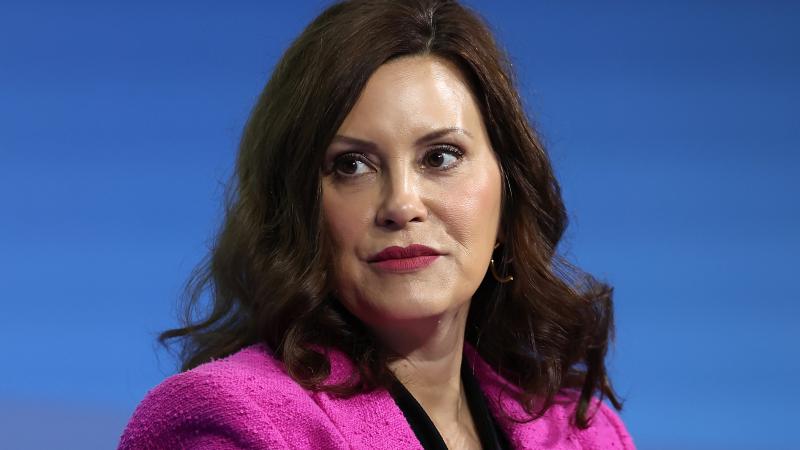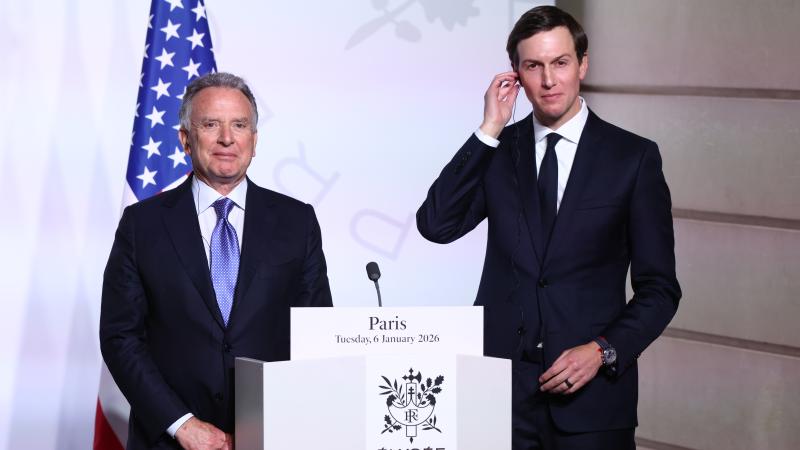Press freedom watchdogs fail to condemn antifa assault on gay, Asian journalist
Andy Ngo suffered wounds to his knee and abdomen and bleeding in one eye while reporting fresh material for his new book.
Andy Ngo is a gay, Asian journalist, a new media reporter covering dangerous political protests at a time when anti-Asian hate crimes are on the rise.
So when Ngo reported being physically assaulted, again, by antifa while on assignment May 28 one might have expected a rush of press freedom watchdogs, civil rights and minority advocacy groups to decry the attack. Think op-eds, social media messages and calls for the protection of all journalists, particularly those from marginalized groups, when covering the news.
Few such expressions of solidarity have been forthcoming, at least not from mainstream outlets and left-leaning reporters.
Portland police confirmed that Ngo was attacked by antifa protesters while reporting fresh material for his recent book, "Unmasked: Inside Antifa's Radical Plan to Destroy Democracy."
Several antifa members learned of Ngo's presence in their midst and physically assaulted him. He suffered wounds to his knee and abdomen and bleeding in one eye.
It could have been worse, though. After Ngo ducked into The Nines hotel to prevent further injuries, "protesters pounded on the front doors of the hotel as Ngo slipped out the back entrance into a waiting ambulance that transported him to a hospital," Portland's KOIN reported.
Video footage backs up at least some of Ngo's claims, with protesters heard screaming, "Nazi scum" at the slight reporter.
JustTheNews.com reached out to multiple journalism groups for comment on the incident, one Ngo documented on social media by sharing images of his bruises, bloody cuts and method of self-preservation.
Six journalism organizations ignored requests from Just the News to address the mob assault:
- The Poynter Institute
- Newsmedia Alliance
- The Asian-American Journalists Association
- Investigative Reporters and Editors
- American Society of Journalists and Authors
- Columbia Journalism Review
Freedom House, which says part of its mission is to ensure journalists can "report freely on matters of public interest," responded, "We don't have anything to add to the story."
Antifa protests have roiled Portland on and off for at least two years, causing extensive damage to federal buildings, private property and area businesses.
It's hardly the first time journalists have rebuffed Ngo and his attempts to report on antifa.
Rolling Stone responded to the left-wing extremist movement's 2019 attack on Ngo, which left him with face lacerations and a potentially chronic brain injury, with this incendiary piece headlined "How a Right-Wing Troll Managed to Manipulate the Mainstream Media."
More recently, Twitter removed the word "journalist" before Ngo's name after the May 28 attack went viral on the social media platform.
Ngo responded to Twitter, and to the greater journalism community, via his Twitter account:
My detractors do this because they want to take away the one thing that all decent people agree on: press freedom is sacred. Who the far-left defines as "press" are those who write what they approve of. Anyone else is a "provocateur" deserving of intimidation & violence.
Drew Holden, a conservative commentary writer for Fox News, The Washington Post, The Federalist and The New York Times, says the 2019 beating of Ngo sparked a different reaction from the press. Even some left-leaning journalists recoiled at Ngo's injuries.
"There was this rallying cry, 'Don't allow this to happen,'" Holden recalls.
CNN.com, for example, called the 2019 attack "sickening," writing:
Simply bearing a name that says you're opposed to evil, like anti-fascist, should not inure us to your unprovoked violence and unconstitutional attempts to block others' free speech rights. Everyone, right and left, must condemn and literally unmask this behavior — not glorify it for political ends.
CNN's Jake Tapper observed on Twitter: "Antifa regularly attacks journalists; it's reprehensible."
Andrew Yang tweeted this message following the attack: "I hope @MrAndyNgo is okay. Journalists should be safe to report on a protest without being targeted."
This time, the response from journalists is "disheartening," Holden says, adding the two violent incidents are part of a larger trend.
"Antifa has been threatening him for a long time with physical violence," he says. One reason for the change, he suspects, is increasing antipathy between journalists on the left and right.
"The more folks see themselves as members of a particular team, the less likely they are to reach across the aisle," says Holden. "We cannot be a country that tolerates violence against journalists, regardless of their political affiliation."
When President Donald Trump issued humorous "threats" to journalists, the industry collectively recoiled, Holden recalls.
"That was a big deal, even in joking," he says.
The Ngo incident underscores an issue as old as journalism itself, the need for people to risk personal safety to bring content to the masses.
"We need good, tough-nose reporters like Andy to find out this information," he says. "The only way to get that is when journalists are assured of their safety."
Included among the messages Ngo shared following the May 28 attack were photos of graffiti calling for his execution.
















